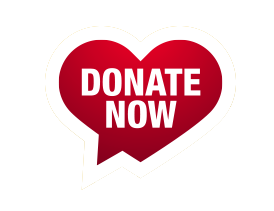Work Strand 1 – Physical Health
Supporting People with Physical Long Term Conditions
What is Physical Health?
The term physical long term health condition usually refers to prevalent chronic diseases such as diabetes, asthma, arthritis, heart disease, hypertension, chronic obstructive pulmonary disease (COPD) and other recognised conditions, which create similar needs and challenges for people. Despite the clinical differences across these long-term medical conditions, each condition confronts people and their families with the same spectrum of needs: to alter their health behaviour; to deal with the social and emotional impacts of their condition or disabilities, and even the possibility of approaching death; as well as coping with issues around transport, housing, employment, education, benefits, pensions and understanding and managing not just the condition, but its impact on people’s lives.
Most people diagnosed with a physical long term health condition often react with shock about their condition, while others are sometimes “paralysed” with anxiety. Similarly, many people feel extremely helpless and overwhelmed after the initial shock. Our organisation provides self management services that enhance quality of life by promoting the physical, psychological, emotional, and social well-being. When people often leave the clinic/hospital to go back into the community is often without much psychological and social support. People sometimes require a great deal more than medical or professional assistance.People require that they are better supported in managing their condition and maintain those things that are important to them – work, socialising, family life etc.
Our organisations’ open door policy of supporting people with a physical long term health condition is in line with the initiatives that uses peer mentoring for people with long term health conditions. Research indicates that peer support can have multiple benefits, not only for the recipient and for the giver of support, but also for organisations and systems within which the peer support is delivered. Individual benefits may include improved physical and mental health, increased life expectancy, improved knowledge about one’s condition and better self-management skills. Providers of peer support may experience less depression, heightened self-esteem and self-efficacy, and improved quality of life. By so doing the NHS may benefit from reduced health care use, increased uptake by hard to reach groups, greater service choice and improved cost-effectiveness.
What is Self Management:
Self management is often synonymous with self care and in order to differentiate between the two, it is important to draw a distinction.
Self Care and Self-Management
Self-Care and Self-management have been used interchangeably in the past. However, The Department of Health (UK) defines self-care as being: about individuals taking responsibility for their own health and wellbeing. This includes: staying fit and healthy, both physically and mentally; taking action to prevent illness and accidents; and the better use of medicines and treatment of minor ailments.
The term self-management, which our organisation focuses on, is related specifically to living with a long term condition and has been defined by Department of Health (UK) as: “The individual’s ability to manage the symptoms, treatment, physical and psychosocial consequences and lifestyle changes inherent in living with a long term disorder.” Self-management is therefore classified as a sub-set of self-care. However, it is important to emphasis that our mission is concerned with self-management. It is against this background that we have established many exceptional key self management approaches to support people.
Developing these approaches is set by high levels of deprivation within many London Boroughs with corresponding ill health, highly diverse communities, and anticipated population growth, which comes with many issues relating to health and wellbeing. Overall, the key self management approaches build on the successful drive to improve quality of life, supporting the continuing shift towards improved health outcomes, reduction in health inequalities and ever-increasing focus on a person-centred approach and experience.
Our Models of Key Self Management Strategies for Physical Health:
- Health Psychology based promotion of healthy lifestyles and Smoking Cessation (Level 3) SCTRP-Program
- Health Psychology based Health Promotion/Awareness Program: The use of Motivational Interviewing Technique (MIT) for behaviour change
- Health Psychology based Promotion of Health-enhancing Behaviours
- Health Psychology based Education on Health-compromising Behaviours
- The use of peer support mentoring
- Coping mechanisms to enhance behaviour modification and change techniques
- Preventative and intervention Lifestyle Factors affecting Health
Our Operational implementation of Self-Management Strategies for Physical Health includes essential skills such as:
- Problem solving — because self-management is problem based, problem solving is a core self-management skill. The process involves teaching beneficiaries basic problem-solving skills; these include problem definition, generation of possible solutions — including the solicitation of suggestions from friends and health care professionals, solution implementation, and the evaluation of results.
- Decision making — A second self-management skill is decision making; beneficiaries with long term health conditions must make day-to-day decisions in response to their conditions. For example, how to know when one has exercised too much or not enough? How to know when a symptom is medically serious? Or, should one continue taking a medication when one has a fever? To do this, people must have the knowledge necessary to meet common changes. It is based on having enough and appropriate information. Beneficiaries need to be able to identify warning signals when caring for their symptoms, have suitable guidelines to follow, and make appropriate choices to manage their symptoms properly.
- Resource utilisation — a third self-management skill is to be able to seek out and use resources. However, it is important to teach beneficiaries how to use resources effectively from as many sources as possible, rather than just obtaining information from one source.
- Effective building of relationships — A fourth self-management skill is be able to build relationships with health care providers. While the health care provider’s role is that of a teacher / partner as well as a professional supervisor, the beneficiarie’s role is that of a partner who reports the trends and tempo of their conditions and makes informed decisions about treatment and discusses these with the health care provider.
- Taking appropriate action — the final self-management skill is taking action. The most important part of taking action is making a short-term action plan and carrying it out.







